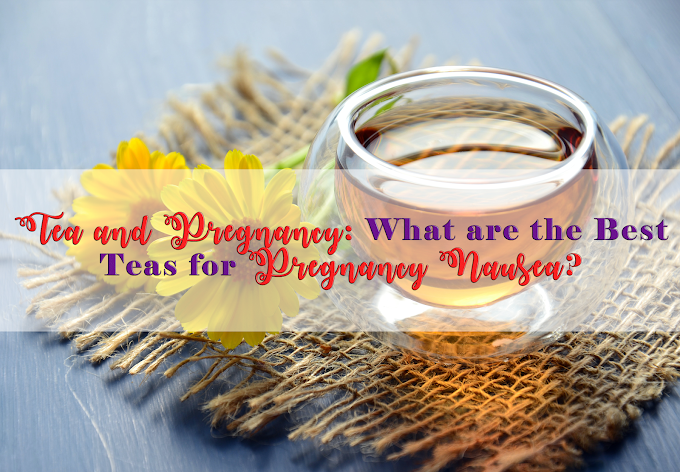Drinking a cup of tea has many health benefits. It helps boost your immune system, fights inflammation, and is good for your overall gut health. But if you're a tea lover, you may be saddened to know that tea and pregnancy don't always go together and that you may have to give it up for the time being as it contains caffeine.
The good news is not all kinds of tea are bad for pregnant women. In fact, some herbal teas are safe and can help you sleep, calm your anxieties down, and prepare your uterus for labor when taken in moderation. Some can even help calm your upset tummy because of morning sickness.
Are Teas Good for Pregnancy?
When you find out you're pregnant, you'll quickly learn that there are certain foods you need to avoid—which is a real bummer. For example, you need to avoid caffeine—and tea has a good amount of that.
If it has caffeine, how is tea good for pregnancy?
Like I said earlier, some teas are good, but some may also potentially harm pregnant women. All teas sourced from the leaves of the Camellia sinensis plant have a good amount of caffeine. This includes black, green, white, matcha, chai, and oolong teas.
In a 240 ml cup, each contains approximately this much caffeine:
- matcha: 60–80 mg
- chai: 47–53 mg
- oolong tea: 38–58 mg
- green tea: 29–49 mg
- black tea: 47–53 mg
- white tea: 25–50 mg
But why is caffeine so bad?
It can cross the placenta, and your baby's liver isn't mature enough to break it down. Plus, research suggests babies exposed to large amounts of caffeine during pregnancy have a higher risk of being born prematurely, with birth defects, or low birth weight. It also increases the risk of stillbirth or miscarriage.
So, how much caffeine is too much?
Fortunately, you can avoid these risks by avoiding tea or limiting your daily consumption to a maximum of 300 mg a day. But keep in mind that every woman's genetics aren't the same. Some women may be more sensitive to the negative effects of caffeine than others. For example, a small portion of women has twice as much risk of miscarriage when they consume 100 to 300 mg of caffeine a day.
Caffeinated teas have less caffeine content than coffee. That makes them safer to consume during pregnancy. However, you still need to limit your intake to avoid unwanted side effects.
Most herbal teas, on the other hand, don't contain caffeine. That's because they're made from dried flowers, herbs, spices, or fruits. This makes them generally safer during pregnancy. So if you really must have your daily cup of tea, I suggest you switch to the herbal kind. However, some may still contain compounds considered unsafe for pregnant women, such as the following:
- fenugreek
- fennel
- sage
- licorice
- borage
- vervain
- pennyroyal
- motherwort
- lovage
- thyme
- black cohosh
- blue cohosh
- chamomile (in large amounts)
- frankincense (in large amounts)
7 Best Teas for Pregnancy Nausea
Here's a list of the best teas for pregnancy nausea.
Ginger tea
Ginger has been used as a natural nausea remedy for many centuries. It's commonly added to tablets, candies, and chews to help settle upset stomachs. Countless studies have proven that eating 0.5 to 1 gram of ginger helps relieve vomiting and nausea caused by morning sickness. Most of these studies focused on supplements and highly concentrated ginger extract. But you can still get the same benefits when you use ginger tea for pregnancy nausea.
Red raspberry leaf tea
This herb is known for its ability to alleviate morning sickness and relax the smooth muscles of the uterus. However, there's also evidence that it can cause uterine contractions, so you should be careful about drinking it in the early stages of your pregnancy.
It's best to avoid red raspberry leaf tea during your first trimester, but it's recommended in your third trimester. There's also evidence showing that it helps heal the uterus. Plus, it's rich in calcium and helps with breastfeeding. So, it might be a good idea to keep drinking it even after giving birth.
Peppermint tea
Peppermint is touted to be one of the best solutions for many common pregnancy ailments, such as morning sickness, heartburn, and headaches. Studies have shown that it doesn't harm the mother and baby. This makes peppermint tea generally safe for pregnancy nausea—but only when consumed in small amounts. It's best to drink no more than one to two cups a day. Any more than that can lead to an upset stomach or--worse--menstrual bleeding. It's also best to avoid this tea during your first trimester to be on the safe side.
Lemon balm leaf tea
Lemon balm has been used medically for at least a couple of years. It has a calming effect, making it great for relieving tension, insomnia, anxiety, and stress. It also helps with pregnancy nausea and vomiting.
Chamomile tea
Chamomile tea has been known for its relaxing properties, which is why people tend to drink it at night before going to bed. In traditional medicine, it's also used to treat indigestion, motion sickness, and gas. Various researches also suggest that consuming a cup a day can help with nausea and vomiting.
Take note that chamomile has chemical properties that can potentially stimulate the uterus or cause circulation problems in your baby. So, avoid drinking in large quantities. If you're overly cautious, you can avoid it altogether during your first trimester, when miscarriage is most likely to happen. It's highly unlikely that this herb would actually cause miscarriage, but it's better to err on the side of caution.
Spearmint leaf tea
The use of spearmint as a medicinal herb dates back to ancient Greece. It's known for relieving menstruation symptoms, such as fatigue, cramps, and even nausea. It's also safe for pregnant women, so it might be worth checking out if it can help alleviate your morning sickness. If you're not sure, you can always ask your doctor for their advice.
Honey lemon tea
Honey and lemon already have many benefits on their own. When paired together, they make a great tea. Honey lemon tea is not only tasty. It's also jampacked with nutrients. The smell of lemon helps ease morning sickness in pregnant women, while honey balances out its acidic taste. It also boasts antibacterial properties, which protect you from infections that can cause nausea.
Conclusion
Herbal teas are natural and caffeine-free. Sipping a hot cup of tea can help relieve pregnancy nausea and vomiting. But, keep in mind, drinking too much may lead to undesirable effects. Plus, some herbs have properties that may not be good for pregnant women. So, be very careful when you consume herbal teas. It would be better if you seek the advice of your doctor before taking any.




0 Comments